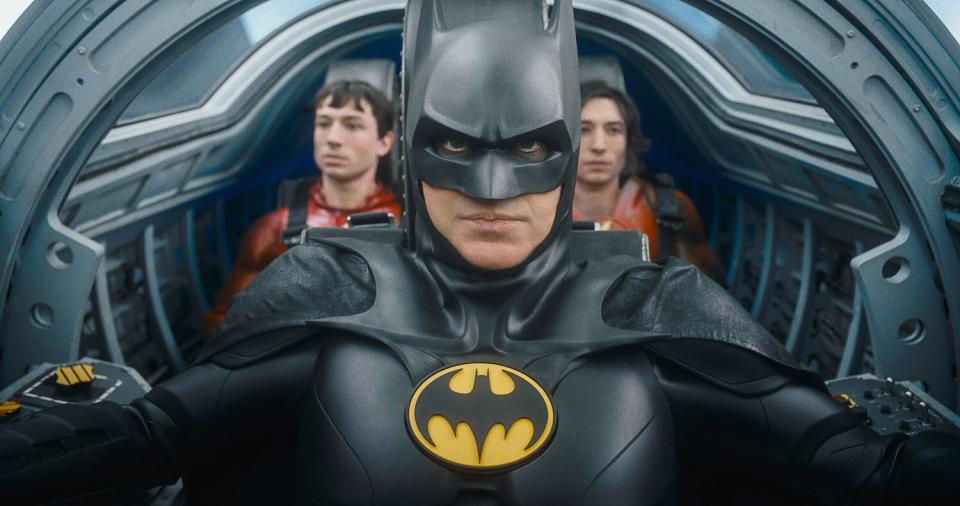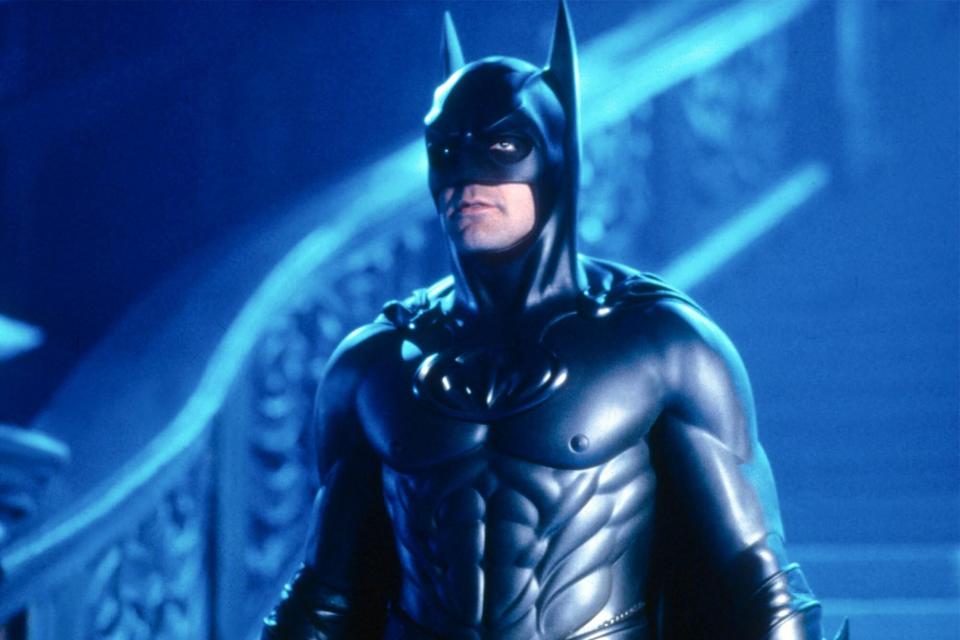What the ending of The Flash could mean for future DC movies

- Oops!Something went wrong.Please try again later.
- Oops!Something went wrong.Please try again later.
- Oops!Something went wrong.Please try again later.
Warning: This article contains spoilers for The Flash.
Ever since Samuel L. Jackson popped up at the end of 2008's Iron Man with a promise of the other Avengers to come, post-credits scenes have been an indelible element of superhero movies. But while The Flash does have a post-credits scene, it's mostly harmless fun. After all, such scenes used to be all about unexpected cameos and teases for future sequels. But now that superhero movies like The Flash are fixated on multiverses, those kinds of Easter eggs are part and parcel of the main course. Michael Keaton is basically the second lead of the film.
The Flash comes at a weird time for DC comic book movies, where the franchise continuity that began a decade ago with 2013's Man of Steel is still limping along, even though the new studio heads are actively casting a new Superman as we speak. The new film has potential to connect the two eras since it's adapted from the 2011 comic Flashpoint by Geoff Johns and Adam Kubert, which kickstarted DC Comics' "New 52" continuity reboot. Just like in that story, Ezra Miller's Barry Allen goes back in time to prevent his mother's murder, and in doing so messes up the whole timeline. By the end of the movie, most things in Barry's world have been returned to normal… but not all of them. Here's what that might mean!

Courtesy of Warner Bros. Pictures/™ & © DC Comics The Flash (Ezra Miller), Batman (Michael Keaton), and The Flash (Ezra Miller) in 'The Flash.'
The first Batman that Barry interacts with in The Flash is played by Ben Affleck, reprising his role from the previous Zack Snyder-directed DC movies. After Barry does his time travel, that Batman is replaced by Keaton, playing an aged-up version of the Dark Knight he originated in 1989. After undoing his mistake, Barry expects to see Affleck again… but in the final moments of the movie, finds himself face-to-face with George Clooney.
What does this mean? For one thing, it shows that Clooney has come to terms with his disastrous outing as the Dark Knight in 1997's box-office flop Batman & Robin. After years of saying he wouldn't even let his family watch Batman & Robin, Clooney has clearly acquired a sense of humor about his brief time as a superhero.
In terms of franchise continuity, Clooney's cameo is also a sign that many elements of this universe are now up in the air. The door is open for some characters to be switched around while keeping others the same. Miller's Barry could reappear alongside new versions of Superman or Batman, if The Flash performs well enough at the box office (and the actor's various legal troubles are resolved).
But this could also be the end of the speedster character, particularly if the movie doesn't hit with fans. Now that Barry has accepted the death of his mother (Maribel Verdú) and successfully exculpated his father (Ron Livingston), the arc that has defined him on screen so far is resolved.

Everett Collection George Clooney as the Dark Knight in 1997's 'Batman & Robin.'
Regardless, there's already a plan in place. Announcing the new direction for the DC Universe back in January, DC co-head James Gunn said the events of The Flash would lead into the events of the Aquaman sequel, which would lead into the start of a new phase of TV shows and movies that he calls Gods and Monsters. While Gunn is currently casting his Superman: Legacy film as a part of this phase — a reboot of sorts that will focus on a younger Kal-El/Clark Kent instead of Henry Cavill's Man of Steel iteration — The Flash director Andy Muschietti has officially signed on to direct the new Batman movie, which will be based on Tom King's Batman: The Brave and the Bold comic and introduce Hollywood's next Dark Knight to lead the DCU.
Robert Pattinson is still returning to star in the sequel to The Batman, but, to use The Flash-speak, that character is just another alternate-reality Batman that exists in a separate timeline in the DC multiverse. If anything, the ending of The Flash creates an ideal setup to explain away whatever comes next from DC. Oh! There's a new Superman, you say? Well, Barry messed with the timeline so it's a different version of the character. Jason Momoa is still playing Aquaman (for now anyway)? Well, not everything is different.
For what it's worth, the brief post-credits scene of The Flash involves Barry helping an obviously drunk Aquaman (played by Momoa) into his apartment. Since Barry had struggled to find evidence of Arthur Curry's existence earlier in the story, this is proof that Aquaman at least has been restored to normal — but you probably already knew that, since Aquaman and the Lost Kingdom is still set for a December release.
The Flash is now playing in theaters.
Want more movie news? Sign up for Entertainment Weekly's free newsletter to get the latest trailers, celebrity interviews, film reviews, and more.
Related content:

